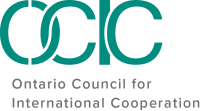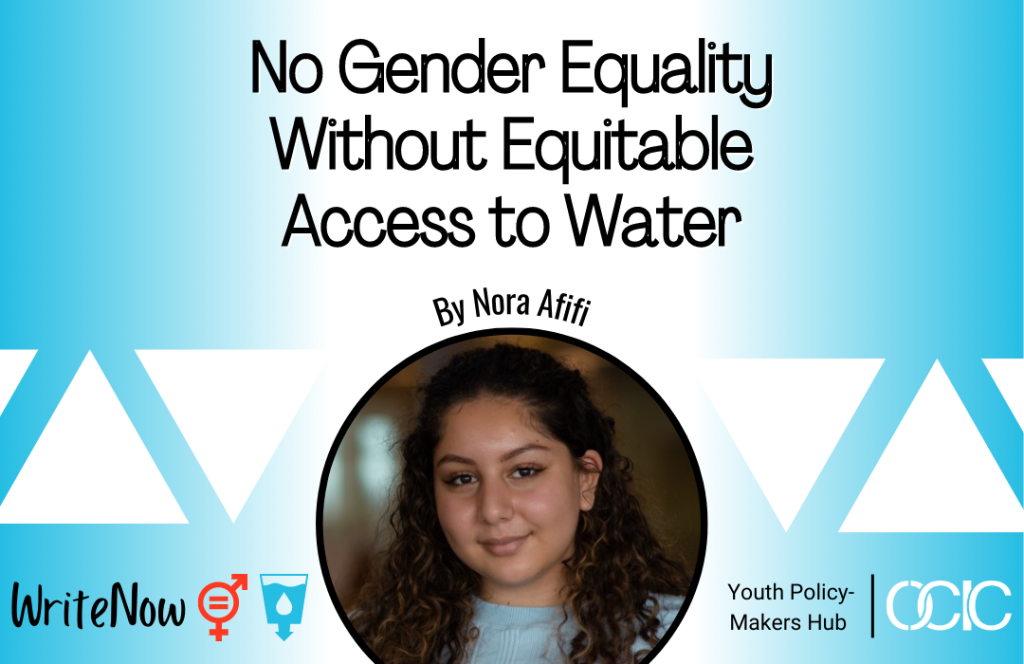
No Gender Equality Without
Equitable Access to Water
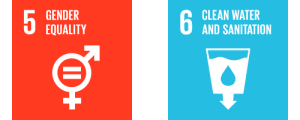
By Nora Afifi | June 6, 2023
Growing up, I was raised to believe in the healing powers of water. If I got a scrape, I was told to go soak it off in the ocean to prevent infection. If I got sick, I had saline spray squirted into my nose. If I was sad, I was told that crying would make me feel better. Then, of course, there were books, movies and TV shows like Percy Jackson and Avatar: The Last Airbender. The healing abilities of water were continuously complimented by the imagery of women and girls as caregivers and healers, guardians of the home, of children, and the innocent.
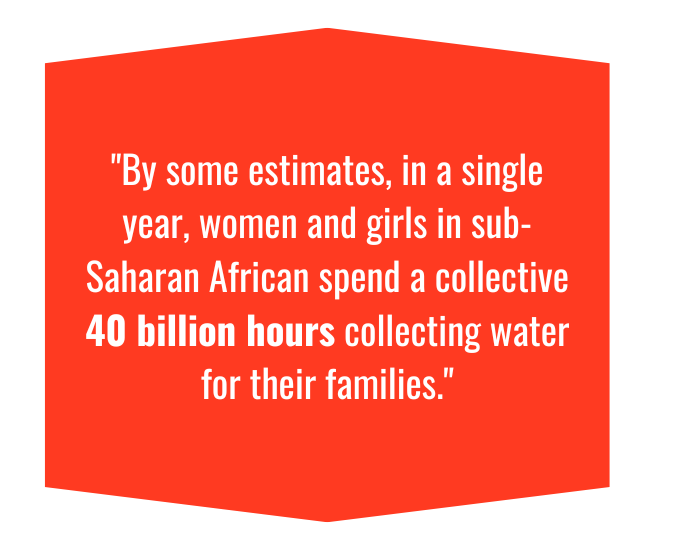
In that way, I have been hyper-aware my whole life that the feminine, women, and girls, have always had their identities tied to the qualities of water. For millennia, goddesses, women, have been the guardians of freshwater. These representations have often been reduced, much like the role of women has been, to their fertility. While it is true that freshwater systems are essential for the fertility of soil, they have served and continue to serve human and more-than-human beings. Freshwater provides sustenance, health, trade, connectivity, and culture. Women and girls have been guardians of these resources and they continue to be. They contribute to the sustenance, the health, the trade, the connectivity and the culture of their communities.
Beyond the metaphorical and the mythological, women and girls continue to see their experiences shaped and informed by freshwater resources. To this day, in many parts of the world, it is women who make the most use of freshwater resources and who are charged with ensuring access to it for their families and their communities. Where women are caregivers and homemakers, they are responsible for ensuring they have the water to accomplish the tasks that go along with those roles. For those reasons, particularly in rural communities, a lack of easily accessible and safe clean water is most costly to women.
By some estimates, in a single year, women and girls in sub-Saharan Africa spend a collective 40 billion hours collecting water for their families. It is likely that the number will only continue to grow as the impacts of climate change-related events force women to travel further distances from their communities to access safe water resources. These distances are often travelled alone, which increases their risks of violence. In Latin America and the Caribbean alone, 31% of the population must travel 30 minutes away to access improved sources of water.
The responsibility to retrieve water often falls disproportionately on young women and girls, who are responsible in 80% of the households for which water collection is necessary. They are often tasked to retrieve water in the early hours of the morning and unsupervised. This has repercussions on their physical health, due to the violence they may face or the physical burden of carrying heavy loads of water over increasingly large distances. This responsibility may mean less sleep, less time to play, and less time for their studies.
The inability to properly manage and maintain water resources can also burden women and girls in other ways. Poor water management may provide fertile ground for the spread of water-borne diseases. If family members get sick, women and girls are often expected to be the main caregivers and this increases their risk of getting sick as well.
Poor water management also exacerbates conflict, which threatens the security of women and girls. Since 2020, according to the Pacific Institute’s The World’s Water resource, 140 conflicts have been triggered by disputes of water. In conflict, women and girls are targeted by physical violence. Conflict forcibly displaces women and girls or restricts their access to economic opportunities. It has long-term consequences on the physical and mental health of women and girls and of the safety of their environment.
Poor water management also means a lack of WASH (Water, Sanitation and Hygiene) facilities. This forces women and girls to stay home and limit their ability to attend school or go to work. In fact, according to the WHO/UNICEF WASH progress report for 2000-2020, in Cuba, 32% of women in rural communities did not participate in one or more of either school, work, or social activities during their menstrual period. A lack of these WASH services exacerbates the spread of diseases, impacting their Sexual and Reproductive Health Rights (SRHR), while increasing the burden of caregiving on women and girls. The lack of sanitary services causes women and girls shame and embarrassment, which has lasting impacts on their mental health and confidence.
Where states have failed to provide freshwater resources to communities, they are seen to opt for open pathways towards the privatization of water resources, often under the guise of better resource management, as El Salvador’s government has been accused of. Privatization of freshwater resources for these communities further aggravate socioeconomic inequalities. Across the world, women are often tasked with managing family finances. This responsibility is a burden on women who are continually asked to stretch limited financial resources further in order to ensure the provision of basic services for their families. Thus, the privatization of freshwater only adds to the many burdens that women already juggle in hopes of providing for their families.
It is not enough for a government to ratify that water is a human right or promise to improve its water management systems to ensure that communities have fair and equitable access to safe freshwater resources. It is also not enough for a government to claim it is moving towards gender equality to improve the lives and opportunities of women and girls. There can be no substantial progress towards gender equality, so long as there are no concrete efforts to ensure sustainable and equitable access to safe drinking water for all. Future policy on accessible access to safe drinking water, both at home and abroad, should consider and empower the women who are charged with sourcing water for their families and communities. Governments must encourage women and girls’ participation in education and the workforce by ensuring that schools and workplaces provide proper WASH facilities. Communities where water user associations, water boards or water committees manage resources at the local level, should be incentivized to ensure an equitable representation of women and under-represented groups in leadership positions.
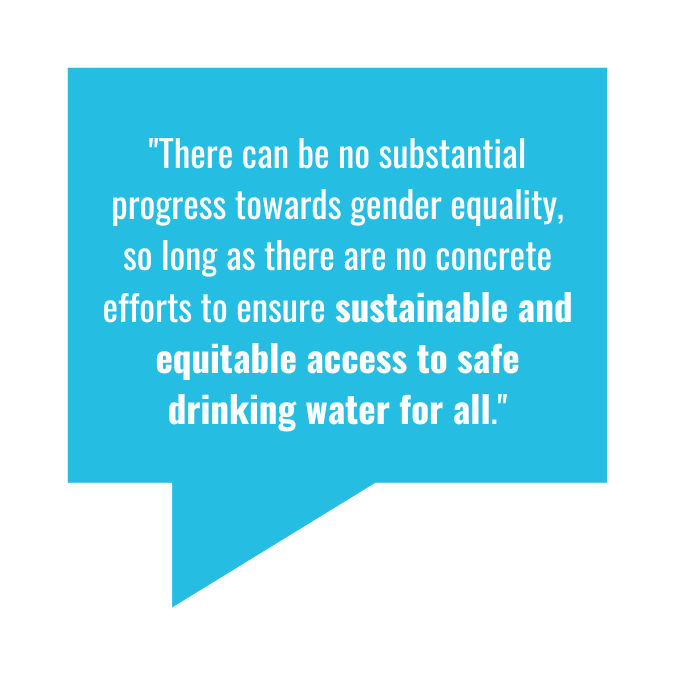
Women and girls, much like water, have long been considered passive features of the policy landscape. However, like water, women have continued to work on the margins shaping the policy landscape and making in-roads, despite the many obstacles in their way. The United Nations Sustainable Development Goals are meant to support and uplift one another, where progress in one should lead to progress in the other. Working to dismantle the systemic barriers to gender equality warrants the freeing of accessible and safe water resources for all and vice versa, both at home and abroad – its time policy reflects that fact!
Nora is originally from Victoria, BC. She moved to Ottawa in 2020 to pursue her studies in International Development at the University of Ottawa. She is very persistent in what she wants to be. Her colleagues would say she is reliable, and her friends think she is a good listener (probably because she loves learning about others). It’s meeting people with different backgrounds and experiences that fuels Nora and her hopes for a better, more just future. She is desperate to see real change and progress. She is tired and frustrated by stagnation, but not discouraged. Policy is one of the best tools that we have to move towards social and climate justice, and she is hoping to advance such work as part of the YPH. In her spare time, she is an avid reader, a watercolour artist, and an amateur movie critic, otherwise you can find her slipping down another Wikipedia rabbit hole.
